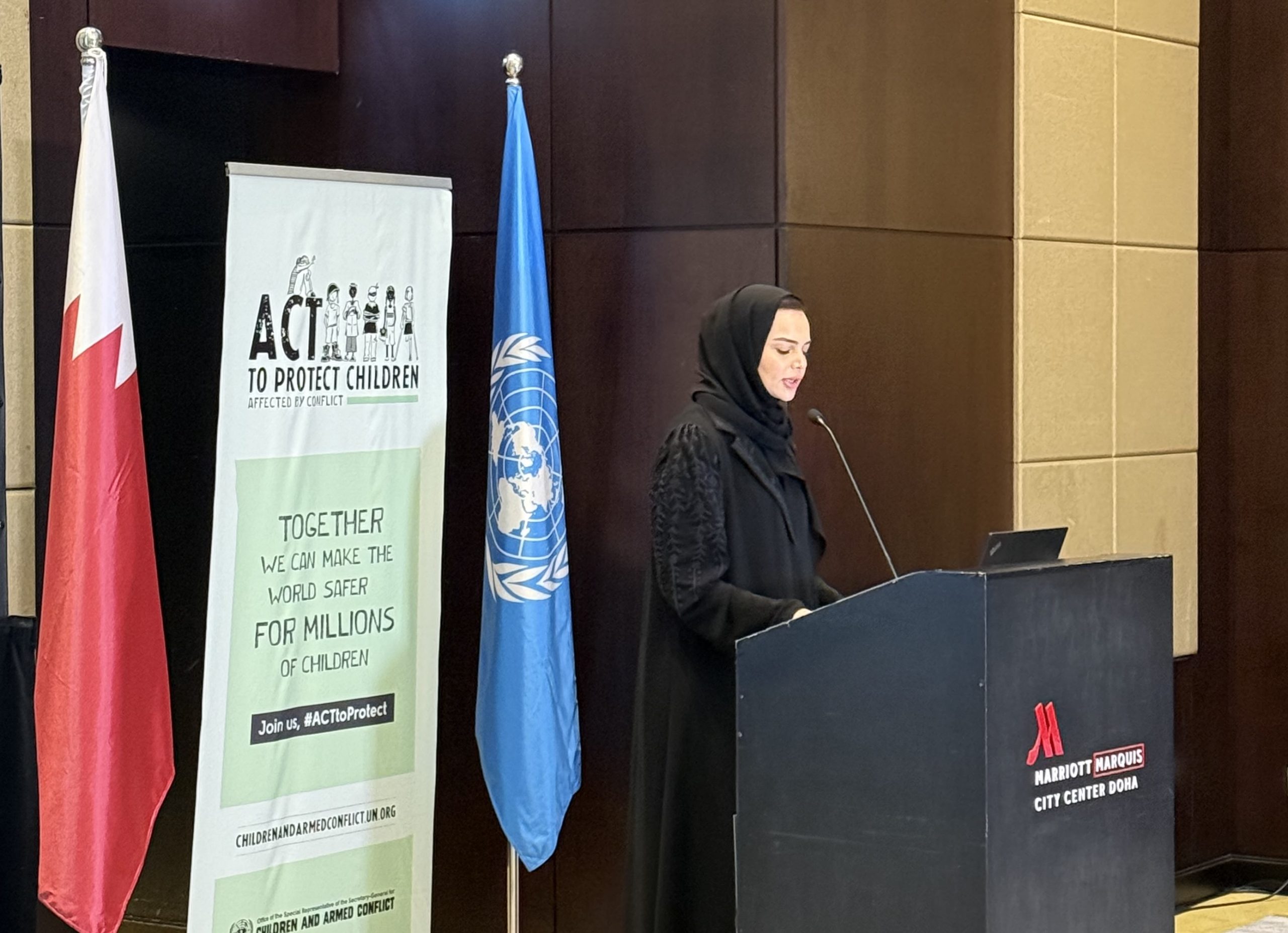The UN Office for Children and Armed Conflict hub in Doha held a workshop to help journalists improve their reporting on the impact of war on children.
The Analysis and Outreach Hub of the Office of the Special Representative of the Secretary-General for Children and Armed Conflict (OSRSG-CAAC) in Doha conducted a workshop focused on improving local journalistic reporting on the critical issues faced by children affected by armed conflict.
Doha News, as well as news organisations such as Al Jazeera and Al Araby TV, were among the news media companies invited to attend the workshop on Wednesday.
In her virtual opening remarks, Special Representative of the Secretary-General, Virginia Gamba, emphasised the critical role of journalists in advocating for children’s rights.
“Your words have the power to expose the harsh realities faced by children in conflict zones,” she stated.
Last month, during the third edition of Qatar’s National Forum for Human Rights, which centered on safeguarding children’s digital rights, Gamba told Doha News that in the current climate, children are increasingly vulnerable to war crimes both online and offline.
During the workshop, the Office of the Special Representative for Children and Armed Conflict (CAAC) outlined the six grave violations against children: killing and maiming, recruitment and use of children, sexual violence, abduction, attacks on schools and hospitals, and denial of humanitarian access.
These violations serve as the foundation for the office’s efforts to collect further information and compile reports on abuses against children.
The workshop featured a series of interactive sessions designed to provide journalists with practical skills in reporting on sensitive issues surrounding children in conflict.
The first exercise focused on highlighting the imbalances in a child’s life in armed conflict, often leading to dire consequences.
In the second task, participants were encouraged to draft press releases concerning the experiences of children formerly associated with armed groups in Yemen, emphasising the need for clarity and sensitivity in addressing these complex topics.
The final exercise involved analysing a mock report that highlighted how grave violations against children can be committed by both state and non-state actors. It also addressed the challenges of distinguishing whether a crime has occurred such as the use of a school for military purposes during armed conflict.
This analytic exercise aimed to equip journalists with the tools to highlight critical issues while adhering to ethical reporting standards.
The focus on the urgent need to protect children extends beyond physical violence. For example, health agencies like the World Health Organization and UNICEF issued a statement earlier this month urging the protection of children and health facilities amid efforts to conduct polio vaccinations in Gaza.
The OSRSG-CAAC serves as a crucial entity within the United Nations framework, focusing on protecting children in armed conflict situations.
Comprising a group of 24 experts based in Doha, New York, and Brussels, the office collects and analyses data on the violations against children, enabling targeted advocacy efforts.
In light of ongoing tensions in Gaza and Lebanon, Dawood Mahmoud Al Massri, the Head of Analysis and Outreach Hub at OSRSG-CAAC in Doha, told Doha News that the workshop “comes at a critical time” due to the “unfortunate escalation of conflict in the region”.
“As a result, such workshops have become essential,” he said. “They serve not only as platforms for learning and exchange but also as opportunities to enhance our collective efforts to protect children affected by armed conflict.”







